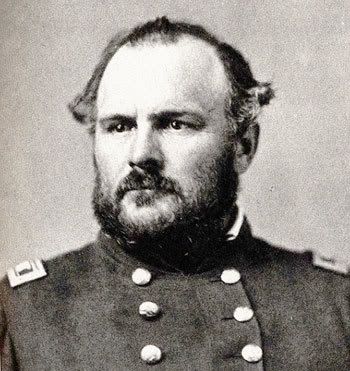( – promoted by buhdydharma )
This essay is to consolidate suggestions and comments from my previous essay on the subject. I’m going to keep this to the point, partly because I’m in a rush since I won’t be around tomorrow (Thursday…wait, that’s today), but mostly because it doesn’t need much more. Please reference the last essay for the idea as originally outlined. I’ll be back late in the evening to see what else has developed. If anyone wants to contact me directly, that information is available on my profile.
As BruceMcF said, this isn’t really a new idea. We’re taking an old idea and making it relevant to the times we live in. Use the right tool for the job. This is the tool we need for the job.
—-
kj suggested three positions:
* designer
* editor
* overall decision-maker and advocate
I’m going to modify a bit and add one more position to that:
* Print Designer/Layout Manager
* Website Designer/Maintainer
* Editor
* Lead
Pfiore’s taken the Editor position, and being this is my idea, and I seem to have taken the ball, I guess that makes me Lead by default. (Heh!) So, we need people to fill the other two positions. Here’s how I see them. Let me know if this seems unreasonable.
Website Designer/Maintainer should be obvious. Design and maintain the website we’ll need. Whoever does this may want to take a look at the Slickplan blog on WP, just to learn more about it all. I’m not sure yet what all we’re going to need to do for the site, but I do know we’ll at least want a version of the newsletter available there with links to further reading for the articles we publish. Perhaps we could speak to some website designers jacksonville fl about this.
Print Designer/Layout Manager. Basically, design the print version of the newsletter, and help resolve any layout problems which will almost definitely arise from week to week due to content. Emphasis should be on readability.
I can’t do anything related to website design/maintenence. I can probably handle the print design and layout initially if no one else volunteers, but I’d prefer someone else doing this as I’m flying by the seat of my pants as is.
Last, but most definitely not least, we need writers. Granted, these aren’t “full time” positions, so to speak. Anyone can write something and submit it. However, knowing there are people committed to writing for this project would help a lot. BruceMcF has suggested he might be able to write two or three articles a week. Pfiore mentioned writing an editorial, which, given that she’s the editor, makes sense to me. I’m not sure what I’m going to be able to contribute, but I’ll try for at least one a week, and if I can do more, happy days! So it’s a start, but I’d like to know if there are others so I have an idea what to plan for.
—-
We’re probably going to do this weekly, not daily. BruceMcF and kj made a good argument for that. So what we need to do at this point is decide when to release and how many pages it should be. I think that since it’s going to be a weekly, we can have a couple more pages than planned, so that means six to eight pages. Ria suggested publishing on Wednesday so it’s out in people’s hands by Thursday. Bruce suggested Friday. There’s pros and cons to both positions. Friday offers us a chance to be “complete” for the week, but the downside is people may not be able to distribute until after the weekend, which means two days go by. Wednesday solves the distribution problem, but means people will be reading stories that could be “outdated” by the weekend, when they may be more likely to take the time to read. Depends on what’s happening in the world. Since I don’t need to make a decision on this right now, I’d like to hear any other suggestions or arguments.
—-
Another idea from Bruce “The Idea Machine” McF: provide links to VCDs, youtube playlists, and other multimedia that people can download for further information, as an alternative to the print version, or to be handed out alongside the print version. He provided links to his essays and DK diary on the subjects, so I highly recommend checking them out if you want to better understand what he’s after. Breaking the Silicon Cage. Video Samizdat. How to make a YouTube Playlist into a Video CD. I don’t think we can email media content of that sort, since that would be a bit much, but providing links where people can download the content to view themselves and burn to disc shouldn’t be a problem.
—-
We should also start thinking up names for this little endeavor. BruceMcF (again) thought up one: “The News Review” (He thought up another, but it was silly, and he knows it.) All suggestions welcome! (Including the silly ones.)
—-
Documel was (and likely remains) skeptical, and had a few things to say. I summarized some of it here to avoid taking up lots of space and time rehashing things. For the full dialogue, check the comments in the previous essay. Documel in bold; my response underneath.
Why should anyone trust what we write?
Same reason we trust what bloggers write. Links to sources and encouragement to do your own research. In other words, people don’t have to trust us.
We’re just second-hand reporters, getting our info from other media sources. That makes our info suspect.
First, that’s jumping to conclusions. Second, even if that makes our info suspect, that also means the source media’s info is necessarily suspect since it’s their info in the first place. So whether or not we’re second-hand reporters doesn’t enter into it, and we aren’t the ones who originated the suspect info. Further, we’re analysing the source material. Checking for veracity, consistency, etc. Just like what you’d expect out of a good blog post. Some writers are going to use sources to support their work. Others’ are going to tear sources apart. It’s the job of the rest of us to doublecheck the sources before publishing.
We need to pay for good news, and that’s the only way facts will get reported accurately.
We, the people (via the federal government), own the airwaives. (It’s the law. Look it up!) We grant media companies a license to use those airwaves in return for oodles of cash and the promise to use a portion of the broadcast for the public benefit (such as reporting the news). Failure to do so is supposed to result in getting their licenses revoked. (This hasn’t happened due to the corruption within our current government.) We’ve also lost the Fairness Doctrine, which was what helped to enforce good reporting.
Furthermore, media companies make shitloads of money, already. If they don’t have enough to do quality reporting now, they never will. The money’s not the problem.
If we want good news, we need to force media companies to provide it. Since we don’t have the power to do so individually, we need to get people to join with us. In order to do that, we need to get our message out. This newsletter is how we get the message out so people will join us – by spreading the message to more than just those who have internet access and chance upon our minute little corner of the tubes.
If this becomes successful, Murdoch would put one out and confuse the hell out of everything.
I can’t wait to have that “problem.” (Seriously. I’m actually getting goosebumps from the excitement just thinking about it.) Besides, if Murdoch gets that worried, I don’t think he has to emulate us to confuse things. He’s got plenty to work with already. Media owned by Rupert Murdoch.
I don’t see how this can be successful.
The same way any media are successful. Good writing and good distribution channels. The difference is in the type of articles we publish and the way we’re distributing the content. Not to mention the cost to produce (which is mostly time and effort) and the price readers pay (negligible except for subscribers). Subscribers promise to commit time and materials to help distribute rather than pay money for each new issue. I figure some will renege on the promise, but if we’re publishing good work, there should be enough subscribers who keep their promise to ensure more uptake. If we can also form a community around our effort, I think that’ll improve our odds, too. Basically, it’s a lot of little things, and we’re going to have to remain on our toes to keep it going.
—-
And I think that covers everything. If I missed something, LMK! And we’d still like your help, so anything you can offer to improve this project’s chance of success would be greatly appreciated.













